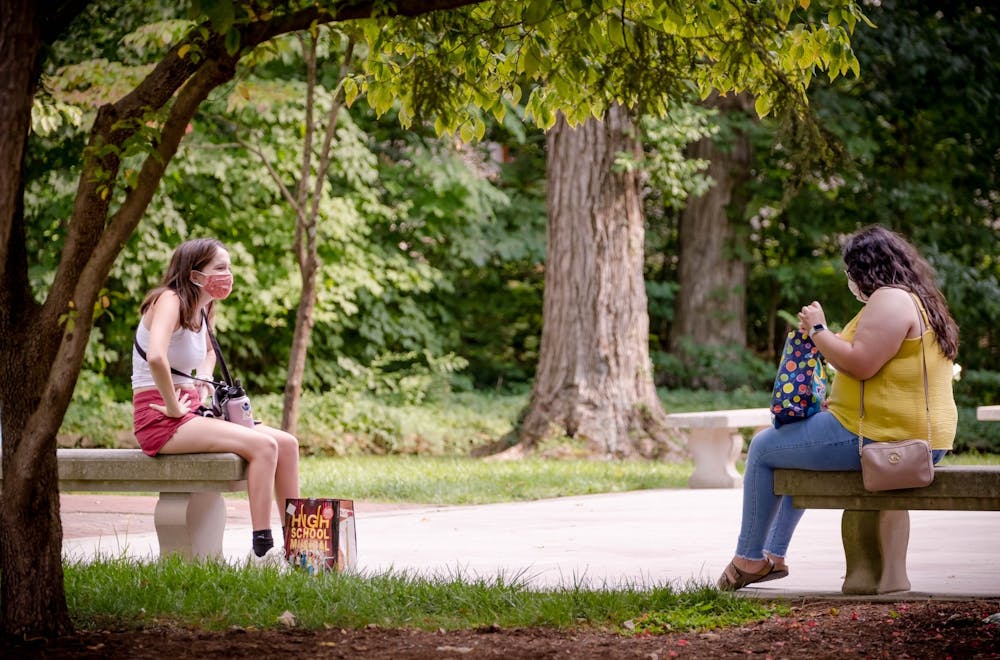When I looked through my announcements on Canvas, I noticed a new pattern. My professors are sending out mental health resources daily and asking their students to seek help. My heart slowly breaks as I realize my classmates — the classmates I cannot see in person and only have access to virtually — are hurting. They are hurting so terribly it is preventing them from performing well academically or having any sense of normalcy in their lives.
Since 1975, September has been Suicide Prevention Month, which honors Suicide Prevention Day on Sept. 10. Throughout the month, suicide prevention organizations do promotional events and fill all sorts of media sources with different resources and hotlines. Suicide is the second-leading cause of death for Americans aged 10-24.
"That's the thing about depression: A human being can survive almost anything, as long as she sees the end in sight," said Elizabeth Wurtzel, author of Prozac Nation. "But depression is so insidious, and it compounds daily, that it's impossible to ever see the end."
During Suicide Prevention Month, it has been brought to the attention of many that the COVID-19 pandemic is causing a spike in depression and anxiety nationwide. Last month alone, there were 20,000 texts sent to the federal government’s disaster distress hotline.
According to a July poll, 53% of adults say their mental health has been negatively affected by the COVID-19 pandemic. A poll conducted by Healthy Minds Network found the rate of depression among college students specifically has drastically increased since the beginning of the pandemic.
Many use the rising rate of mental illness connected to the COVID-19 pandemic as reasoning to re-open schools, stores, churches and other establishments. However, if we choose to do this, the pandemic will only last longer. Look, for example, at Italy, a country that had one of the highest rates of at the start of COVID-19. Since then, it drastically decreased the number of cases by having a long and strict nationwide quarantine period. The U.S. never did this.
Being put into COVID-19 isolation is a huge weight on anyone’s mental health, especially for those who are already battling depression and anxiety — two extremely isolating diseases. It can really discourage people from reaching out for help. It is not possible to get proper help if your only option is to talk to someone you live with — who might not understand — or while you are trapped in a room with little connection to the outside world.
All of this is on top of the already normal stress of college academics and extracurriculars.
For some students, going home can be a way to have a mental break from the stresses of college life, but that has also been put on hold for fear of exposing family members to the coronavirus.
Recently, the percentage of students being forced into isolation across IU-Bloomington's campus has skyrocketed. That means hundreds of students who normally have a schedule full of activities and classes they are passionate about are being forced to stop and be alone for two weeks.
IU’s counseling system is heavily lacking. Considering students normally only get two free sessions, which is not nearly enough for people suffering from mental illness, and with little outreach from the service itself, it may as well not exist. IU’s mental health care system, Counseling and Psychological Services, is notorious for having few options for programs and a ridiculously long wait time for appointments. It is needed now more than ever, but as it was already insufficient, these students being affected because of the COVID-19 pandemic are not getting the resources they need and are suffering from it.
We, as an IU community, need to realize none of us are alone through all of this. Anxiety, depression and other mental illnesses are already isolating for many. The addition of physical isolation is dangerously detrimental to one’s mental health.
We should encourage each other to find resources for help, and be a resource for our friends and classmates. That being said, students should also demand university mental health resources become more easily accessible and that they actually be there to answer the call. Check in on each other, wear a mask and let’s get to the other end of this pandemic united.
Maggie Mulligan (she/her) is a sophomore studying recreational therapy and theatre. She is a member of the Redstepper Dance Team, Gamma Phi Beta sorority and the Panhellenic Association Diversity and Inclusion board.






